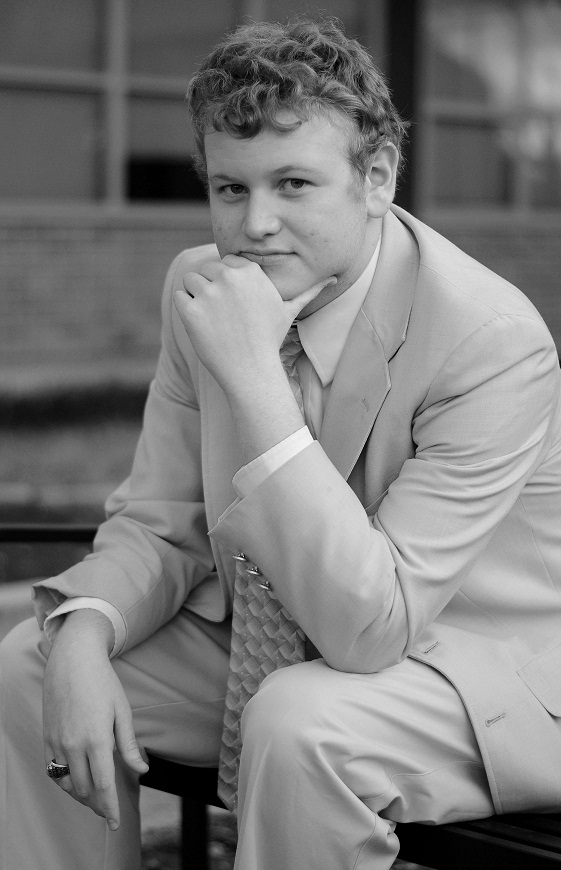Dear Dee,
What will life be like after Jesuit?
– Curious George
[divider style=”normal” top=”20″ bottom=”20″]
Dear Curious George,
 Life will be different, interesting, weird, exciting, uncomfortable and amazing. It will be a plethora of experiences that will invoke all kinds of thoughts, feelings and emotions. I am now wondering if, while reading this, you noticed something about the commas in the first two sentences? (I know, who really pays that much attention to grammar and what not? Well, I do sometimes, so I just wonder if anyone else shares this “grammatical examination process” and happened to notice.)
Life will be different, interesting, weird, exciting, uncomfortable and amazing. It will be a plethora of experiences that will invoke all kinds of thoughts, feelings and emotions. I am now wondering if, while reading this, you noticed something about the commas in the first two sentences? (I know, who really pays that much attention to grammar and what not? Well, I do sometimes, so I just wonder if anyone else shares this “grammatical examination process” and happened to notice.)
Since commas generally mean a pause in the sentence, you could have noticed just by the flow of the first two sentences how they effect the reading of them. The manner in which the first two sentences are structured with regard to commas is one of the three reasons why I dislike this comma structure. First, when listing things without putting a comma before “and”, it is called the “non-Oxford comma.” For instance, “I like to eat apples, oranges, bananas and grapes” is a non-Oxford comma, whereas “I like to eat apples, oranges, bananas, and grapes” is an Oxford comma, or serial comma (Disclaimer: This is from Wikipedia, but I believe it, and I didn’t want to do much research.)
When there’s no comma before “and” it upsets the flow of the reading of the list, forcing the reader to scan over the last two items of the list together, almost as if they are one item. That is very annoying. The second reason I don’t like the non-Oxford comma is because it can cause confusion. If you write “I painted my room blue, red and yellow,” that could mean that you mixed together red and yellow, therefore painting your room blue and orange. However, if you write “I painted my room blue, red, and yellow,” we know that it’s three separate colors.
The third reason I dislike it is because I’m not used to it; I’ve always had it in my head that a comma comes before “and” in a list. That’s just the way I learned it.
Yeah, okay, I’m a little obsessed with grammar (I guess). This makes me the proverbial “Grammar Nazi” in accordance with common lingo nowadays. (I think “Grammar Fascist” sounds cooler and should replace it, though.)
Anyway, it seems that I’ve gone off on a tangent irrelevant to the true topic at hand: “Life After Jesuit.” I’d like to circle back to it. The simplest way to put it is that it– life– will be different, and you have to adjust to it. It may sound like a cliché, but it’s a cliché for a reason: you will have greater freedom while having greater responsibility, also. Life is all about balance, balance between all aspects of life. It’s simplest to divide these aspects into two categories: responsibility and other. Finding balance between these is crucial, and, to do this, you have to find out what’s best for you, to achieve this balance. Nobody can do this for you, and just as important as that, is that you can’t let anyone else do it for you.
Basically, you have to be mature and handle things for yourself without needing to rely on someone; and, if someone tries to overly control your life (parents would be the most likely), you have to convince them to lay off a little bit. Being able to be self-sufficient is important.
This doesn’t mean you have to be alone, though, of course. If you need help, ask for it. Coming from Jesuit means you have people who can help you. However, you have to be able to help yourself as well.
Overall, life after Jesuit will be a new experience, and overall a good one, unless you royally screw up your opportunities or something goes terribly wrong (hey, it’s always possible). It’s all about adjustment and finding balance.
And then, of course, there’s the super fun part that I’ve not yet mentioned, which is exploring experiences, exploring the world around you, and exploring yourself. There’s a time and a place for everything, and that place is college. Once again, it’s up to you to put this into context for yourself.
Some take it as making the best of their opportunities, and setting up a path for the rest of their lives, achieving that “balance.” Others take the “#yolo” approach and put it in the context of being a total nimrod and wasting their time and their parents’ money by not being responsible, and by consistently waking up in a daze after a long night of hitting something other than the books.
Don’t get me wrong, there’s nothing bad about having a good time, but don’t overdo it, and don’t be an idiot. That being said, all college kids are idiots on some level, I just hope you’re not one of the really “high level” idiots.
So, overall, life after Jesuit will be continuing to explore yourself and your life and it will be finding your balance and what works for you, while at the same time getting a good education.
Oh, and one last thing to mention: a lot of college professors are really smart, and some of them, if I’m not mistaken, blur the line between “ridiculously smart” and “crazy.” Just be ready for that. I honestly think it’d be awesome to have a professor like that; it’d be super interesting. However, the TV shows “The Following” and “Dexter” provide eerie examples of crazy college professors with the characters Joe Carroll and Professor Gellar, respectively (yes, I know I watch creepy TV). Let’s just hope none of your college professors will be like them. I feel like ending on this weird note, so, that is all.
Sincerely,
Dee






